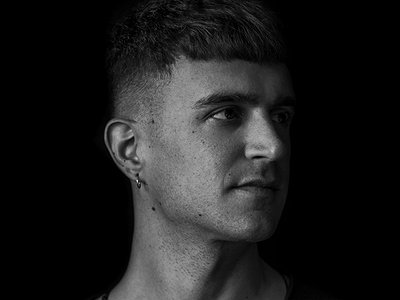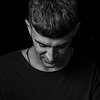Part 1
Name: Fabio Florido
Nationality: Italian
Occupation: Producer, DJ
Current Release: Back to Earth by Fabio Florido and Disentrall is out now on bandcamp
Recommendations: 'Many Lives Many Masters' by Brian Weiss: "A book that talks about regressions to past lives in order to clean up issues a person might be having in their current life. He’s a psychologist and reports hundreds of sessions in his studio to people, explaining many correlations from what we're carrying from the past and the present. Very interesting."
If you enjoyed this interview with Fabio Florido, visit his soundcloud account or Facebook profile for everything you ever wanted to know about him and his music.
To dive even deeper, check out our second Fabio Florido interview, where he talks about the healing with music.
When did you start writing/producing music - and what or who were your early passions and influences? What what is about music and/or sound that drew you to it?
I started when I was around seventeen, eighteen years old. Obviously I had no idea what I was doing for a good first period. I remember using one of the first versions of Fruity Loops, purely for fun. And who knows, maybe I had found a way to be in front of a computer like my peers but without playing any “games”, which I hated.
Then a dear childhood friend, a passionate lover of drum and bass, gave me a first taste of Ableton live and from there things started to get much more interesting, although I only used a computer, a program, samples and loops.
My biggest inspiration from the first moments was Plastikman, an alias of Richie Hawtin. Minimal, pure electronic. In a nutshell I think I was fascinated by the fact that through music I managed to escape from where I was. It already happened to me with old flames such as rock just before I discovered electronic music .. but with techno it was a completely different story. And with producing it, even better!
[Read our Richie Hawtin / Plastikman interview]
For most artists, originality is first preceded by a phase of learning and, often, emulating others. What was this like for you? How would you describe your own development as an artist and the transition towards your own voice? What is the relationship between copying, learning and your own creativity?
I think that emulating someone else is essential in the first stages, and so it was for me, too. Undoubtedly Plastikman's albums were my beacon in the beginning. I think the process was very natural for me, very organic. I never forced myself to "break through", I dedicated myself to production while my life flowed full of crazy weekends in clubs, school, friends and foolishness, but every day I was there in front of my old computer trying and experimenting.
I was then influenced by London, where I lived for four years, Ibiza another four, now Berlin for five ...
I think that with electronic music production (always bringing new possibilities), a person never stops learning and refining his taste that goes hand in hand with the experiences of life. Of course there is always a fondness on a more subtle level, but honestly my music is changing even now in these months due to the world’s circumstances and what they’re triggering in me. The three factors of copying (I’d say more “getting inspired”), learning and one's own creativity are for me deeply interconnected.
What were your main compositional- and production-challenges in the beginning and how have they changed over time?
I'll remain faithful to the previous answer and I tell you that in reality I hardly ever perceived any "challenge" precisely because I hardly ever had the weight of having to get everything at once. I have always been aware that it would take a long time to refine my technique, so it was useless to feel overwhelmed if I still could not get the metrics I wanted in my tracks, or the quality of the sounds.
As for the knowledge bases of music, I was helped by many years of studying the piano from a very young age, this has always given me ideas during the production, even if I had no idea what wheel I was turning in a plugin. However I like to look back and see the progress and sometimes I think that if I had the studio full of hardware right away, now I would not appreciate them so much! What has changed since then? Much more familiarity and knowledge, many more synths. But I feel the same when I sit in front of my computer.
What was your first studio like? How and for what reasons has your set-up evolved over the years and what are currently some of the most important pieces of gear for you?
It was in my bedroom and made of a computer with many internal plugins. After a while I bought a UC33 Evolution controller and terrible speakers with an exaggerated subwoofer. As it was, I took it to London where I started to expand it as I earned my wages. I wanted to expand it for the need to touch something tangible. I wanted to create a balance between plugins and hardware. In fact now they compensate each other, and I couldn't exist without one or the other. To date I am using my Dave Smith Prophet 6 Sequential, Analog Rhythm from Elektron, the whole pack of Roland Aira machines, some synths from Waldorf and my beloved Native Instruments Komplete 11 plus more plugins. Living in Berlin has allowed me to make many friendships with other producers, so every now and then I go to record hours and hours of Modules (which I don't own yet), and from there I cut and sew in my studio.
How do you make use of technology? In terms of the feedback mechanism between technology and creativity, what do humans excel at, what do machines excel at?
Not even having a classic instrument in the studio, I can say that I am completely immersed in technology and that without technology we would never have been able to get the sounds I love. I think technology is the sea and we producers of electronic music are sailors in many boats. Some exploring incredible places, some with one direction and others simply wandering. But we all float.
Production tools, from instruments to complex software environments, contribute to the compositional process. How does this manifest itself in your work? Can you describe the co-authorship between yourself and your tools?
I believe we become one thing when I’m in a creative process. When I’m lucky to enter a state of flow in the studio, I find myself connecting synths between each other, creating feedbacks, adding effects, channelling cables ... and I look back not even remembering how that happened!
Collaborations can take on many forms. What role do they play in your approach and what are your preferred ways of engaging with other creatives through, for example, file sharing, jamming or just talking about ideas?
For some reason I have yet to discover, I'm the living example of anti-collaboration in the sense of creating a track and / or remix together with someone else. I don't think it's an ego thing, but somehow I have an idea that I can't take away that it concerns the sacredness of the relationship between a producer and the creative process. It's a one to one story. Of course there are exceptions where the alchemy with the production partner is fantastic and great things can come out that you could not have achieved alone, but I think it is not a constant as many think.
As for me, I find it very productive to visit producer friends in their studios (and vice versa) in my spare moments. Talk, compare, recommend new synths discovered. But then everyone in their own space ahah.






